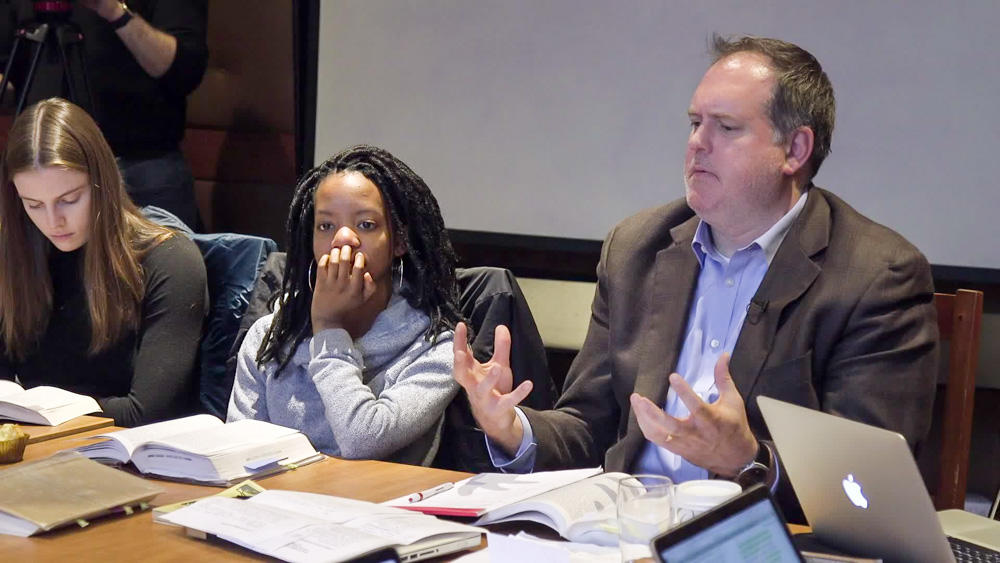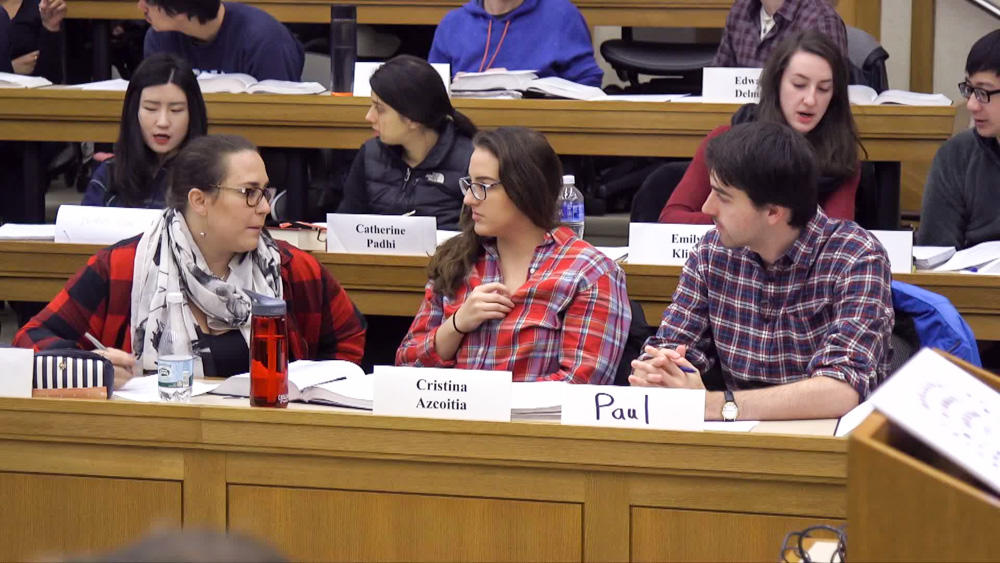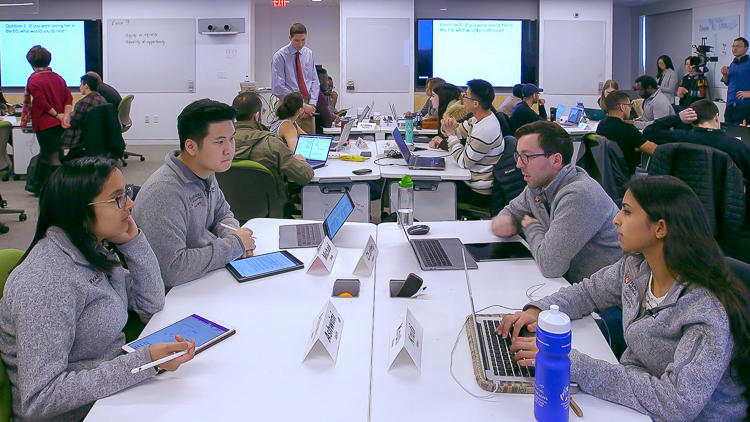Switching up discussion leadership keeps students on their toes and protects class from growing predictable or stale. According to Tim McCarthy, “provoking” discussion gives students a powerful “opportunity to flourish.” However, just because students may have participated in discussions their entire academic lives, they may not have considered discussion facilitation pedagogically. In this video, McCarthy outlines his format for student “provocations” and the steps he takes to ensure thorough preparation and effective performance from his students.
Facilitating student-led discussions
Instructor
Timothy Patrick McCarthy, Lecturer on History and Literature
Student Group
Undergraduate/Graduate
School
Harvard College
Course
Stories of Slavery & Freedom
Group Size
16 students
- Establish formal opportunities for students to lead discussions
- Model the discussion facilitation strategies you want your students to employ
- Require discussion leaders to craft reading/discussion questions and disseminate them to students prior to the class session. They may also structure their discussion based on their classmates’ pre-work; Instructional Moves featured faculty member Jane Mansbridge demonstrates this in “Using Pre-Work to Honor Diverse Voices and Structure Discussions.”
- Scaffold facilitators’ leadership by requiring lesson plans and preliminary office hours to provide feedback and support
- Quantitative data analysis in a teacher education class indicates that student-led discussions can lead to overall increased student participation in classroom conversations and exercises (McMullen, 2014)
- A study shows that when afforded opportunities to lead as instructors or discussion facilitators, students report rates of higher satisfaction and emotional investment in their learning processes (Kurczek & Johnson, 2014)
- According to a research review, assigning students complex, open-ended tasks that require active collaboration and deliberation with others can extend participation and foster an environment where students learn from one another (Webb, 2009)
- Harvard’s Derek Bok Center for Teaching and Learning offers a variety of tips to help discussion leaders
- An occasional paper from the Center for Research on Learning and Teaching at University of Michigan outlines the benefits of teamwork and peer learning in engineering classrooms




